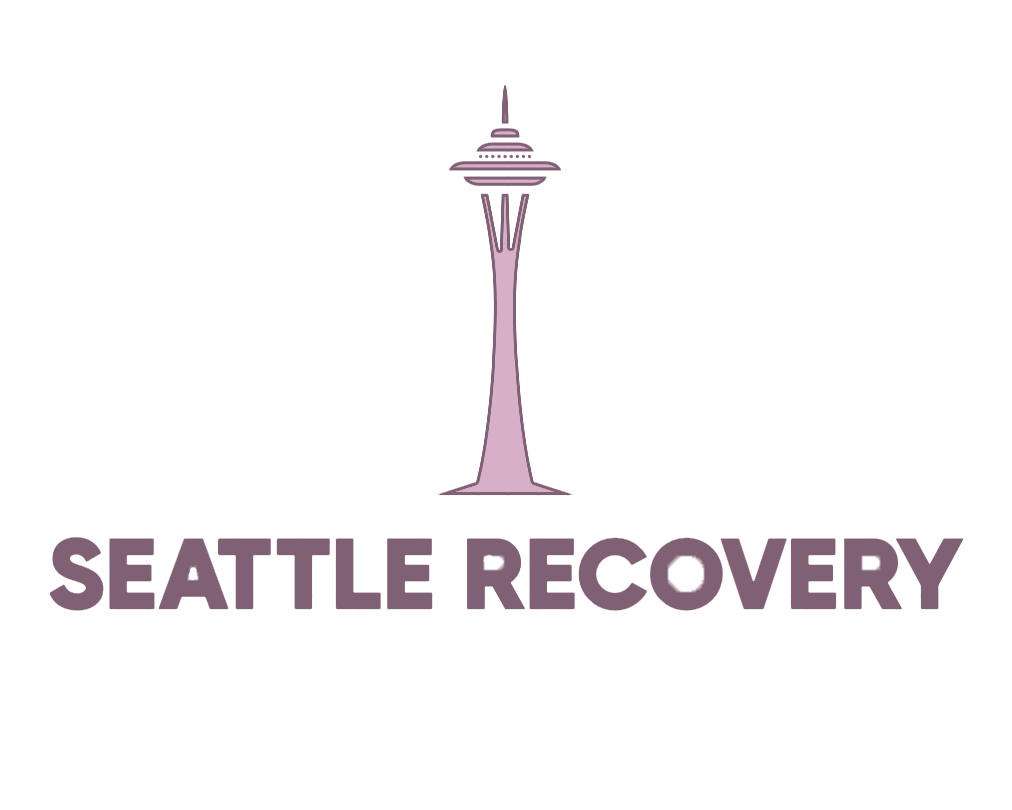Addiction is a complex and devastating condition that affects millions of individuals and families across the United States. It can take many forms, whether it’s substance abuse or process addictions such as gambling, shopping, or internet use. At its core, addiction distorts the brain’s reward system, making it difficult for people to break free without professional help. While many people understand the toll addiction can take on personal health, relationships, and finances, fewer recognize the significant benefits of investing in a treatment center in Washington.
Choosing the right treatment center can be a life-changing decision, both for those struggling with addiction and their loved ones. In this post, we’ll explore the cost of addiction, the impact it has on individuals and society, and why investing in a treatment center in Washington is not only the right decision but a necessary one.
Understanding Addiction and Its Impact
Addiction doesn’t just affect the individual who is struggling with it. Its reach extends to family, friends, colleagues, and entire communities. Whether it’s alcohol, opioids, or behavioral addictions such as gambling or internet addiction, the consequences are far-reaching. The impact of addiction can be felt in all aspects of a person’s life – physical health, mental well-being, relationships, career or education, and even legal issues. It not only affects the person directly involved but also those around them who may suffer from emotional distress and financial burdens.
Furthermore, addiction has a ripple effect on society as a whole. According to the National Institute on Drug Abuse (NIDA), substance abuse costs our nation more than $740 billion annually in lost workplace productivity, healthcare expenses, and crime-related costs. These numbers not only reveal the staggering economic impact but also highlight the toll addiction takes on families and communities.
Physical and Mental Health Consequences
Addiction is a chronic disease that affects both physical and mental health. It weakens the body’s immune system, damages vital organs, and can lead to conditions such as liver disease, heart problems, or neurological damage. For those dealing with substance abuse disorders, withdrawal symptoms can range from mild discomfort to life-threatening conditions.
On the mental health side, addiction often goes hand-in-hand with anxiety, depression, or other mood disorders. Over time, the chemical imbalances caused by addiction can alter an individual’s thoughts, behaviors, and ability to make sound decisions. This is why addiction is often referred to as a “brain disease” — it changes the structure and function of the brain, making it nearly impossible for an individual to overcome it without professional help.
Social and Economic Impact
The broader social and economic consequences of addiction are also substantial. Studies have shown that addiction costs the United States billions of dollars annually in lost productivity, healthcare expenses, and criminal justice involvement. People who are struggling with addiction may have difficulty holding down jobs, maintaining relationships, and contributing to society in a meaningful way.
In Washington State, the financial burden of addiction is no less severe. Emergency room visits, law enforcement costs, and lost workdays all add up. Furthermore, the ripple effects of addiction often strain families and communities, leading to increased rates of domestic violence, child neglect, and homelessness.
The Financial Burden of Addiction
It’s easy to see how addiction’s toll can affect an individual and their family members, but one of the most pressing concerns for those struggling with addiction is often the financial cost. For many, the expenses associated with addiction can be overwhelming. Whether it’s purchasing drugs, alcohol, or gambling away savings, the financial strain often intensifies the already overwhelming stress of the condition.
But it’s important to consider the other side of the equation: the cost of getting help. Treatment for addiction, especially in a quality facility like a treatment center in Washington, requires a financial investment. While this investment may seem significant at first glance, it’s important to understand that the cost of addiction — when measured in terms of both personal suffering and financial losses — far outweighs the investment in recovery.
Direct Costs of Addiction
The direct costs of addiction are clear and measurable. For example:
- Substance Expenses: The cost of purchasing drugs or alcohol can be astronomical. Someone struggling with a severe addiction may spend hundreds or even thousands of dollars per month just to feed the addiction.
- Healthcare Costs: Addiction-related health issues often require medical attention, whether it’s for overdose prevention, chronic health conditions exacerbated by drug or alcohol use, or mental health treatment. This can include emergency room visits, hospital stays, and long-term medical care.
- Legal and Criminal Justice Costs: Individuals struggling with addiction often find themselves involved in legal issues, ranging from DUI charges to theft or drug-related offenses. These legal costs can add up quickly, and criminal charges can further complicate their lives, potentially resulting in imprisonment.
- Work and Income Loss: People with untreated addiction may lose their jobs due to absenteeism, poor performance, or unsafe behavior. This can create a downward financial spiral, further pushing them toward desperation and greater levels of addiction.
Indirect Costs of Addiction
In addition to the direct costs, addiction also results in a variety of indirect expenses that can have far-reaching effects:
- Relationship Strain: Addiction often leads to broken relationships, whether it’s a marriage, family dynamics, or friendships. The emotional and psychological toll on both the individual and their loved ones can be devastating. The cost of repairing or rebuilding these relationships can be immense and is often a key part of the recovery process.
- Psychological and Emotional Damage: The mental toll of addiction can lead to depression, anxiety, and other mental health disorders. Untreated addiction can deepen these issues, resulting in further emotional distress, loss of self-esteem, and feelings of isolation.
- Community Costs: Addiction puts a strain on local communities through increased crime rates, higher healthcare costs, and the social services required to assist those affected. A community plagued by addiction sees higher crime rates, poverty, and homelessness, which in turn create additional costs for taxpayers.
The True Cost of Addiction: Investing in Recovery
Given the far-reaching consequences of addiction, it’s essential to recognize that the real cost is not just the financial burden but the toll it takes on an individual’s life, their health, and the people around them. Fortunately, there is a way out, and investing in a treatment center in Washington is a crucial step toward breaking free from the chains of addiction.

Why Invest in a Treatment Center in Washington?
Investing in a treatment center in Washington is one of the most effective ways to break the cycle of addiction and begin the journey toward lasting recovery. Here are some reasons why:
1. Comprehensive Care for Long-Term Success
Treatment centers, especially those that offer integrated care like Seattle Recovery, understand that addiction is not just about eliminating substance use or changing one behavior. Recovery requires a holistic approach, addressing physical, emotional, psychological, and social aspects of addiction.
At a treatment center in Washington, individuals have access to a range of therapeutic services, including:
- Detoxification: Medical detoxification is the first step in many recovery journeys, ensuring that individuals can safely withdraw from substances under the supervision of healthcare professionals.
- Behavioral Therapy: Cognitive-behavioral therapy (CBT) and other therapeutic models are used to help individuals identify and change unhealthy thought patterns and behaviors that fuel addiction.
- Group Counseling: Group therapy fosters peer support, helps individuals build coping mechanisms, and provides opportunities for individuals to learn from others in similar situations.
- Mental Health Support: Because addiction often co-occurs with other mental health disorders, dual diagnosis treatment is essential to address both the substance use disorder and any underlying mental health issues such as anxiety, depression, or trauma.
2. Professional and Experienced Staff
One of the most significant benefits of seeking treatment at a center like Seattle Recovery is the expertise and experience of the staff. Addiction specialists, therapists, counselors, and medical professionals are trained to understand the complexities of addiction and to develop personalized treatment plans that are tailored to each individual’s needs.
A treatment center in Washington is staffed with professionals who are familiar with the local culture and challenges, allowing them to provide relevant and compassionate care. Their experience in addiction recovery ensures that individuals receive the support, guidance, and resources they need to heal.
3. Supportive Environment
A treatment center provides a structured and supportive environment that allows individuals to focus entirely on their recovery without the distractions or temptations of everyday life. These centers create safe spaces where individuals can heal, grow, and rediscover themselves.
For those struggling with addiction, being in a supportive environment is essential for long-term success. A treatment center offers 24/7 care, encouragement, and accountability, which can significantly increase the chances of recovery.
4. Access to Community and Aftercare Services
A good treatment center doesn’t just stop at the end of the program. It provides clients with ongoing support through aftercare services, including sober living arrangements, alumni groups, and continued therapy. This ongoing support is crucial in preventing relapse and helping individuals integrate back into society after treatment.
About Seattle Recovery
At Seattle Recovery, we understand the immense toll that addiction takes on individuals and their loved ones. That’s why our treatment center in Washington is dedicated to providing comprehensive care and support for those struggling with substance use disorder. Our experienced and compassionate staff are committed to creating a safe and supportive environment where individuals can heal, grow, and rediscover themselves.
We offer a range of therapeutic services, including detoxification, behavioral therapy, group counseling, and mental health support. Our team of addiction specialists and therapists work together to develop personalized treatment plans tailored to each individual’s unique needs. Additionally, our aftercare services ensure that clients have ongoing support even after they complete our program.
As a local rehab option in Washington, we understand the unique challenges and culture of the area. Our staff are familiar with local resources and support systems, making us well-equipped to provide relevant and effective care. We believe that investing in a treatment center is an investment in long-term recovery and a better future for individuals struggling with addiction. Let us help you on your journey towards lasting recovery at Seattle Recovery. So if you’re looking for a rehab in Oregon or the surrounding areas, consider choosing Seattle Recovery for comprehensive and compassionate care.
- Our Family Involvement
Family support is an essential aspect of the recovery journey. At Seattle Recovery, we understand that addiction not only affects the individual struggling with substance use disorder but also their loved ones. That’s why we prioritize family involvement in our treatment programs.
Our specialized family therapy sessions provide a safe and supportive space for families to address any underlying issues and repair relationships that may have been damaged by addiction. We believe that involving family members in the recovery process can be incredibly beneficial for both the individual and their loved ones. It not only helps families understand addiction better but also provides them with tools and resources on how to best support their loved one during and after treatment.
We recognize the importance of having a strong support system in recovery and believe that family members can play a crucial role in this. Our team at Seattle Recovery works closely with families to provide guidance, education, and ongoing support throughout the entire treatment journey. We understand that addiction affects everyone involved, and we are here to help individuals and their families heal together.
Get Help Today
While the cost of addiction is undeniable, the cost of recovery is worth every penny when you consider the profound and lasting changes it can bring to an individual’s life. Investing in a treatment center in Washington offers more than just a pathway to sobriety — it’s an investment in one’s future, in health, in relationships, and in the potential for a brighter tomorrow.
At Seattle Recovery, we understand the challenges of addiction and are committed to providing the highest quality care and support to help individuals reclaim their lives. If you or a loved one is struggling with addiction, don’t wait any longer. Reach out today and take the first step toward recovery. Give us a call at (206) 231-0252 or visit our website at www.seattlerecovery.org.







